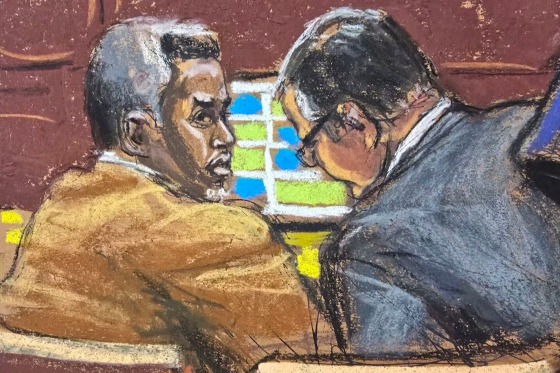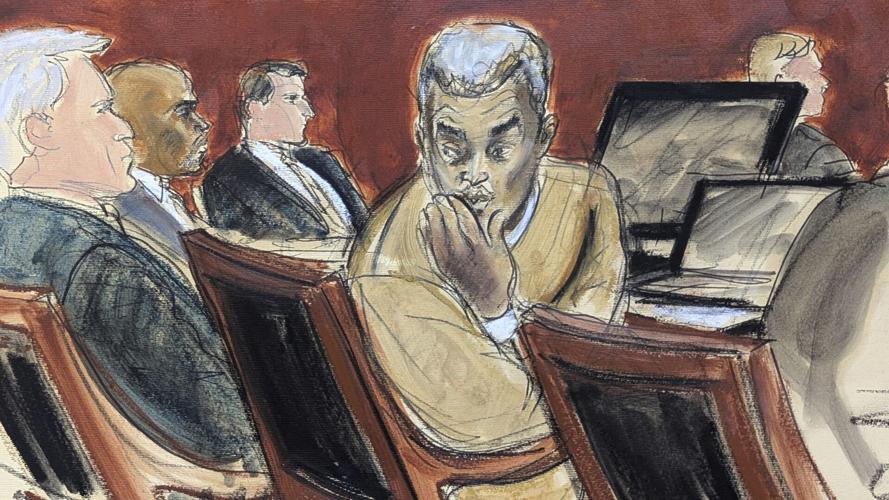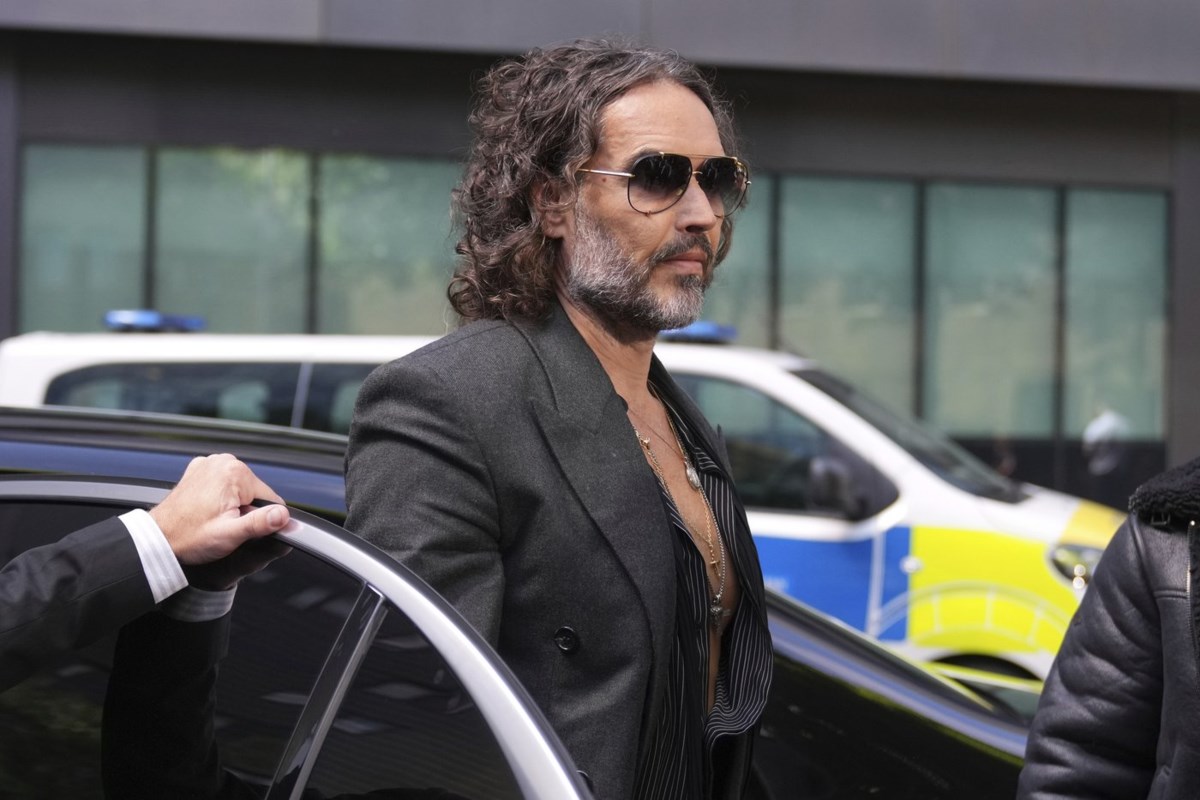Trial of Hip-Hop Mogul Sean "Diddy" Combs: Jury Instructions and Media Coverage
#sean "diddy" combs #trial #jury instructions #media coverage

About the People Mentioned
Diddy
Sean John Combs, professionally known as Diddy (formerly Puff Daddy and P. Diddy), is an American rapper, record producer, and entrepreneur born on November 4, 1969, in Harlem, New York. He began his career in the music industry at Uptown Records before founding Bad Boy Records in 1993. The label was instrumental in launching the careers of notable artists such as The Notorious B.I.G., Mary J. Blige, and Usher. Diddy's debut album, *No Way Out* (1997), achieved critical and commercial success, topping the *Billboard* 200 and producing hit singles like "I'll Be Missing You," which was the first hip-hop song to debut at number one on the *Billboard* Hot 100[1][2]. Diddy has earned multiple accolades, including three Grammy Awards, three BET Awards, and two MTV Video Music Awards. His influence extends beyond music into fashion, with his Sean John clothing line earning him the distinction of the first African-American Best Menswear Designer of the Year by the Council of Fashion Designers of America in 2004. He also ventured into other businesses, including fragrances and a vodka brand, Cîroc, promoting a lifestyle intertwined with hip-hop culture and luxury[1][3]. In recent years, Diddy released *The Love Album: Off the Grid* in 2023, continuing his presence in the music industry. However, his reputation faced serious challenges due to legal issues; in 2025, he was convicted on two prostitution-related charges and sentenced to 50 months in prison. Despite this, he remains a significant figure in entertainment and entrepreneurship, with a career spanning over three decades marked by innovation and influence[4][5].
Sean Combs
Sean Combs, born November 4, 1969, in Harlem, New York City, is an American rapper, record producer, entrepreneur, and actor widely known by his stage names Puff Daddy, P. Diddy, and Diddy[2][3]. He began his career as an intern at Uptown Records, quickly rising to prominence by helping launch the careers of artists like Mary J. Blige and Jodeci[3]. In 1993, he founded Bad Boy Entertainment, which became one of the most influential record labels of the 1990s, introducing artists such as The Notorious B.I.G., Faith Evans, and 112, and later expanding its roster to include acts like Machine Gun Kelly and Janelle Monáe[1][3]. Over three decades, Bad Boy amassed numerous Grammy Awards, Billboard chart-toppers, and sold over 400 million albums worldwide[3]. Combs himself achieved commercial success as a solo artist, most notably with the tribute single “I’ll Be Missing You” (honoring The Notorious B.I.G.), which spent 11 weeks at number one on the Billboard Hot 100 and earned him a Grammy[1]. His debut album, *No Way Out*, went platinum and won the Grammy for Best Rap Album[1]. Beyond music, Combs diversified into fashion with the Sean John clothing line, ventured into acting with roles in film and television, and produced reality TV shows like *Making the Band*[1][4]. He also launched business ventures in spirits, most notably the Cîroc vodka and DeLeón tequila brands[1]. Combs’s influence extends beyond entertainment; he is regarded as a cultural icon and a symbol of entrepreneurial ambition, consistently innovating across industries[3]. However, his legacy has been significantly impacted by recent legal troubles. Beginning in late 2023, he faced multiple lawsuits alleging physical and sexual abuse, which he has denied[1][2]. In 2024, he was arrested in New York City after a grand jury indictment on charges including racketeering and sex trafficking; he pleaded not guilty, and a high-profile trial followed in 2025[2]. While acquitted of the most serious charges, Combs was convicted on two counts related to transportation for prostitution and, in October 2025, was sentenced to 50 months in prison and a $500,000 fine[1][2]. These events have marked a dramatic shift in both his public image and current relevance.
About the Organizations Mentioned
Diddy on Trial
"Diddy on Trial" refers to the highly publicized 2025 federal criminal case against Sean "Diddy" Combs, the renowned music mogul and entrepreneur. The trial centered on allegations that Combs operated a criminal enterprise involving sex trafficking, forced labor, kidnapping, arson, bribery, and narcotics distribution through his business empire, including his famous record label, Bad Boy Entertainment[2][3]. Prosecutors charged him under the RICO Act, aiming to prove he led an organized criminal network. The case was built on testimony from 34 witnesses, including former employees and alleged victims, some of whom were former romantic partners of Combs. These witnesses described a pattern of criminal behavior orchestrated by Combs and facilitated by his inner circle, involving threats, violence, and coercion. Notably, allegations included kidnapping his former assistant and orchestrating the firebombing of rapper Kid Cudi's car as intimidation tactics[1][2]. The trial concluded on July 2, 2025, after three days of jury deliberation. Combs was acquitted of the most severe charges—racketeering conspiracy and sex trafficking—but was found guilty on two counts of transportation for prostitution under the Mann Act. Subsequently, he was sentenced on October 3, 2025, to four years and two months in prison, a $500,000 fine, and five years of supervised release[3]. This trial marked a significant moment in legal and entertainment spheres, highlighting the intersection of celebrity influence, criminal law, and social accountability. It underscored the use of federal racketeering laws to address alleged abuses within high-profile business operations. The case also drew attention to the broader issues of sexual misconduct and exploitation in the entertainment industry. Currently, Sean Combs is serving his sentence, with ongoing public and media scrutiny surrounding his conviction and its implications for business practices in the music and entertainment sectors. "Diddy on Trial" remains a key example of how the justice system











